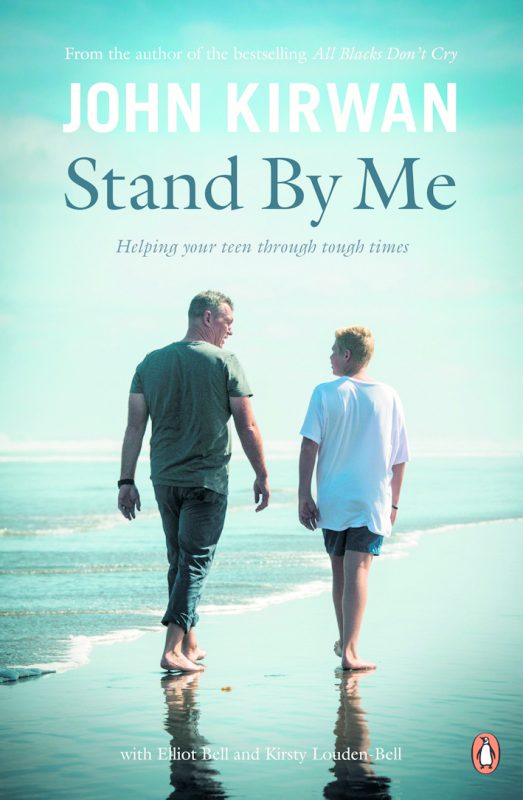STAND BY ME — Helping Your Teen Through Tough Times by John Kirwan, with Elliot Bell and Kirsty Louden-Bell (Penguin Books, 2014); $40. Reviewed by TIM O’SULLIVAN.
 John Kirwan, rugby coach and former All Black, is known for his work in raising awareness of depression through telling his own story and for the
John Kirwan, rugby coach and former All Black, is known for his work in raising awareness of depression through telling his own story and for the
promotion of good mental health.
Mental illness, especially for young people, is a serious problem in New
Zealand and many people suffer some form of depression at some stage
during their lives.
In this book, John Kirwan has teamed up with clinical psychologists Elliot Bell and Kirsty Louden-Bell to reinforce the message that mental illness is a disease that needs sympathetic love and help from family and friends and that recovery is possible.
Mental illness may not be an easy condition to recognise in young people and the tips in this book will help those who care for teenagers recognise when to appeal for appropriate help.
This book did raise questions for me about the causes of mental illness and its treatment.
One prevalent modern medical approach is to treat depression chemically, and this can often be an effective way of moderating the shortage of dopamine
and serotonin in the frontal lobes of the brain, allowing sufferers to live a relatively normal life.
However, depression may not be solely a matter of chemical imbalances in the brain — it could also be an ailment affecting the soul that cannot be resolved
by medicating the brain with drugs.
There are possible causes of depression that cannot be ascribed to chemical imbalances in the brain, including bullying, alcohol and drugs, and the authors have some good suggestions on helping teens manage those issues.
Other causes of youth depression could include fornication, abortions, parental divorce and broken teenage relationships, but New Zealand society is
not good at assessing the moral clarity of many of those issues and many proclaim such things to be good lifestyle “choices”.
If doctors turn to drugs to ameliorate the resulting mental illness, then long term mental health is unlikely.
The horror stories of mental anguish experienced by women who have had abortions, for example, are evidence that mental illness has a cause that cannot be described as just a chemical imbalance in the brain or as a disease.
Kirwan does hint at the issue when he says: “It strikes me that there’s a
contradiction between social pressure and what it takes to be well,” but those
issues are not teased out in this book.
Although there is much that is valuable in this book, particularly around positive parenting that will be useful to parents dealing with mental health
issues in their children, this book is less useful in addressing spiritual
issues.
Nevertheless this book is a good place to start; it will reassure you that you are not alone and that help is available. However, we should not forget the deep resources we possess in our Catholic sacramental and spiritual traditions when helping our young people heal from the damage they experience in life.
Tim O’Sullivan of Christchurch is a family man with a postgraduate degree in history.
Helping our youth: a good place to start

Posted in Reviews
Reader Interactions